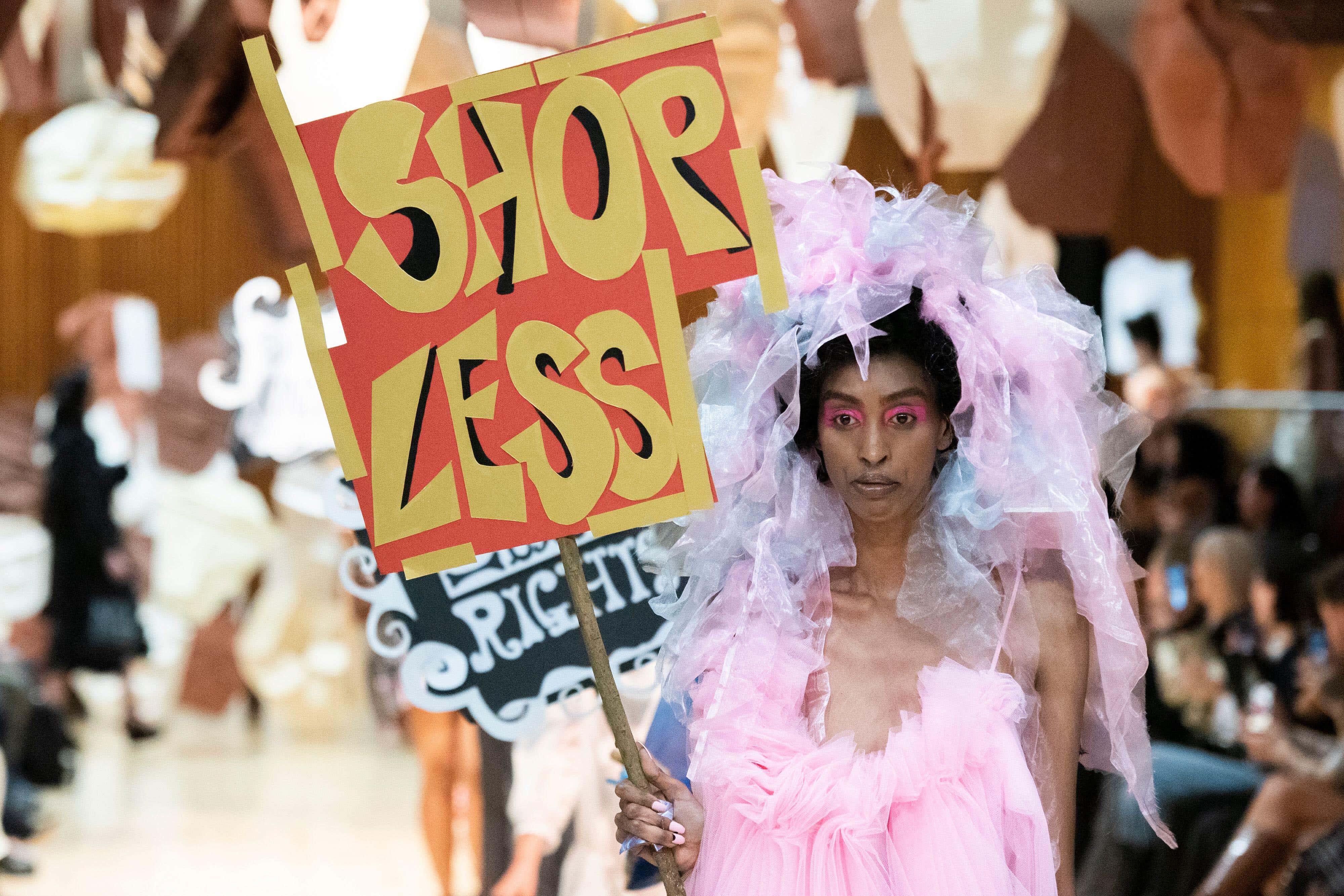What does the future of London Fashion Week look like?
London is fighting for its future as a fashion capital: here’s what the experts think. By Lara Owen.

Your support helps us to tell the story
From reproductive rights to climate change to Big Tech, The Independent is on the ground when the story is developing. Whether it's investigating the financials of Elon Musk's pro-Trump PAC or producing our latest documentary, 'The A Word', which shines a light on the American women fighting for reproductive rights, we know how important it is to parse out the facts from the messaging.
At such a critical moment in US history, we need reporters on the ground. Your donation allows us to keep sending journalists to speak to both sides of the story.
The Independent is trusted by Americans across the entire political spectrum. And unlike many other quality news outlets, we choose not to lock Americans out of our reporting and analysis with paywalls. We believe quality journalism should be available to everyone, paid for by those who can afford it.
Your support makes all the difference.London Fashion Week is the youngest of its peers in Europe and across the pond, beginning only in 1984.
Nevertheless, it certainly maintains the reputation of being the feistiest, with experimental designers, cutting-edge clothes – and regular protests.
Uproar over animal rights and sustainability issues within the industry has led some to question whether fashion weeks should be cancelled altogether.
Yet, fashion remains a crucial societal thermometer, and is often one of the first industries to champion public issues. It goes above and beyond to question politics, gender, tradition and more – yet when it comes to sustainability, the industry tends to fall short.
As London Fashion Week celebrates its 40th anniversary, we hear from industry experts what the future of fashion week holds – and whether there’s a future at all.
On the precipice
“Fashion week is probably the most powerful platform for the discourse around fashion, when considering the scale of the challenges that the industry faces in the context of the climate emergency,” says George Kafka, future observatory curator at the Design Museum.
“I think [London Fashion Week] has an important responsibility to face up to this situation and be a part of the conversation. Fashion week could be a really important ambassador and instigator of these conversations by platforming designers who are putting these practices at the centre of their work. Because, as far as I’m concerned, there isn’t really another option.”
The British Fashion Council (BFC), who run and curate London Fashion Week, say they are making changes. “Fashion week has taken significant strides towards sustainability by becoming entirely fur-free, starting with the 2024 season,” says Caroline Rush, chief executive of the BFC.”
“The BFC is also implementing minimum sustainability standards for emerging designers through initiatives like the BFC NEWGEN, aligned with the UN’s Sustainable Development Goals (SDGs).”
However, a recent report from the Collective Fashion Justice revealed that less than 4% of British Fashion Council member brands have any emissions reduction targets.
This begs the question: are designers valuing sustainability enough?
The UK’s platform for creativity
Nevertheless, LFW’s ability to inspire through fashion is undeniable.
“There is an energy to LFW that drives innovation and challenges the status quo,” says Rush. “Today’s designers need to appeal to both trade and consumer audiences at once, resulting in an inevitable priority shift from press and buyer to influencer and celebrity.”
Appealing to the mass media is no new trick. When Scottish designer Pam Hogg first exhibited her collection at London Fashion Week in 1980s, she soon became a fixture of the season’s calendar for her avant-garde performances. Hogg’s shows were known for their pursuit of imagination and integrity, and she has designed for the likes Siouxsie Sioux, Lady Gaga, Kate Moss and Debbie Harry.
Fashion week allows British designers like Hogg to continue their legacy, alongside up-and-coming designer with exciting things to say through fashion.
“Fashion is a cultural expression that should reflect the true diverse tapestry of our society,” says Victoria Jenkins, founder of socially responsible fashion brand Unhidden.
“This anniversary is not just a milestone; it serves as a call to action for brands to broaden their horizons and consider how they can serve all communities.”
And for models – who look at fashion week from the inside – its value is still clear.
British model Fran Summers, who has appeared on the cover of British Vogue and starred in Burberry campaigns, says: “I’m proud that London is my home fashion week, it really feels like the voices and the ideas come from the new talents, and they have very important things to say.”
So this 40th anniversary feels like something of a milestone moment – and here’s hoping designers continue to challenge the status quo and inspire future generations, while tackling some of the more pressing issues facing society today.